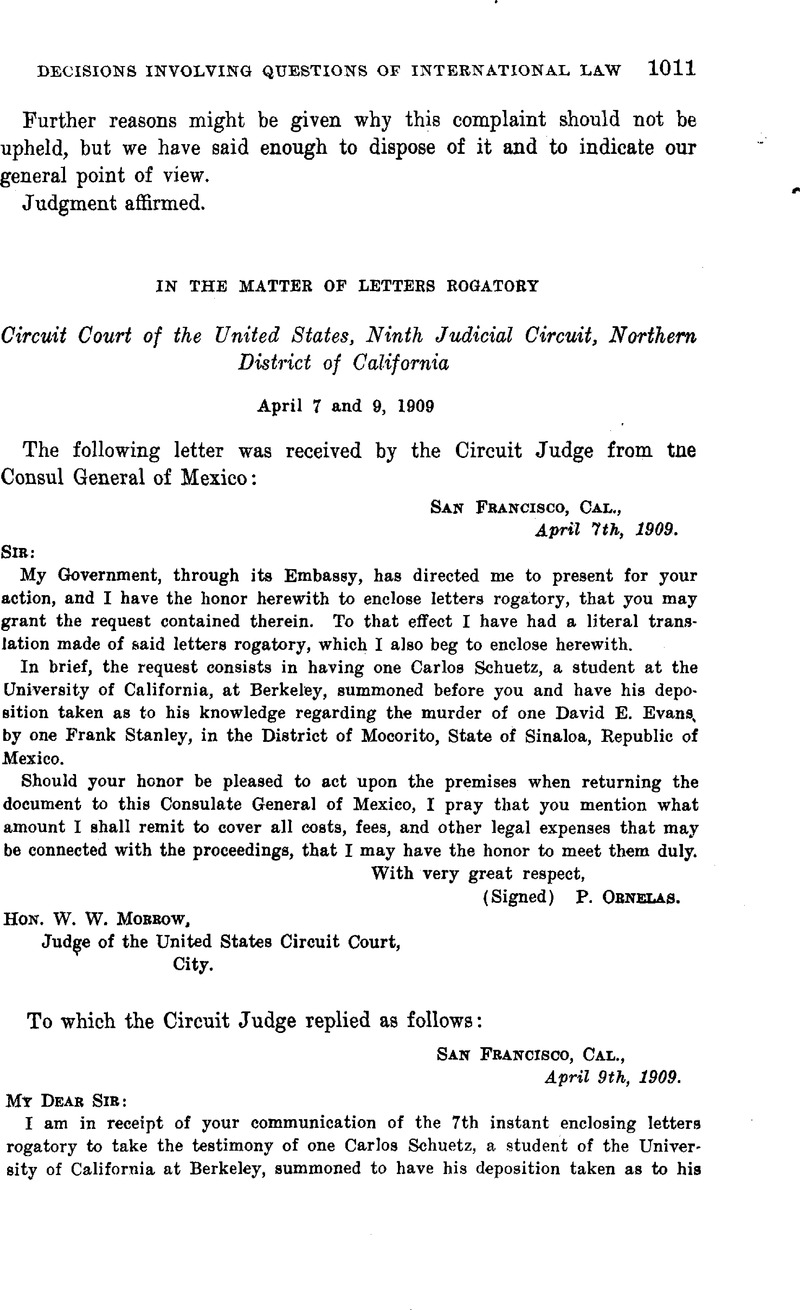An Extensive Review of Letters Rogatory and Their Legal Implications
An Extensive Review of Letters Rogatory and Their Legal Implications
Blog Article
Letters Rogatory Explained: Facilitating Legal Participation In Between Countries

Interpretation of Letters Rogatory
Letters rogatory are formal demands made by a court in one jurisdiction to a court in one more jurisdiction, looking for help in getting evidence or testimony for a legal proceeding. This step-by-step mechanism is vital in the context of global law, where lawful systems might vary, and cross-border participation is necessary. Letters rogatory assist in the event of information that might be critical for adjudicating cases, specifically in circumstances involving intricate transnational concerns.
Usually, these requests occur in civil, criminal, or management issues where an event needs evidence that lies outside the jurisdiction of the requesting court. The letters work as a way to ensure that the principles of due process are promoted, enabling courts to access evidence that might otherwise continue to be unattainable due to legal or geographical barriers.
Using letters rogatory is governed by worldwide treaties, reciprocal arrangements, or domestic legislations, which mark the treatments and obligations of the courts included. It is essential to note that the implementation of such requests is not guaranteed; they depend on the laws and practices of the territory receiving the letter. Hence, letters rogatory are a crucial device for fostering lawful cooperation and making sure justice throughout boundaries.
The Refine of Issuing Letters Rogatory
Issuing letters rogatory entails an organized procedure that ensures compliance with both residential and international legal standards. Initially, the requesting celebration, normally a court or legal authority, composes an official demand outlining the nature of the assistance sought, the evidence or information needed, and the legal basis for the request. This file must be precise to promote understanding by the foreign territory.

The following step involves sending the letters rogatory to the assigned foreign authority. This is frequently done via diplomatic networks or global legal help structures, making sure that the request is obtained and recognized by the foreign court. The international court then processes the request according to its very own lawful procedures, eventually reacting to the requesting party with the popular details or proof, hence promoting international lawful teamwork.
Importance in International Regulation
The significance of letters rogatory in international regulation can not be overstated, as they serve as an important mechanism for judicial collaboration across borders. check These official ask for help in lawful matters allow courts in one jurisdiction to inquire, proof, or the presence of witnesses from one more jurisdiction, therefore assisting in the management of justice in global instances.
Letters rogatory are particularly essential in the context of globalization, where legal disputes frequently span several nations. They enable the collection of evidence that may otherwise be inaccessible, making sure that lawful process are educated and reasonable. By fostering partnership between judicial systems, letters rogatory help maintain the guideline of law and promote common regard among nations.
Additionally, using letters rogatory demonstrates a dedication to worldwide norms and concepts of collaboration, reflecting the interconnected nature of modern lawful techniques. It illustrates the relevance of adhering to recognized treatments and treaties, such as the Hague Convention, which gives a framework for these demands - Letters rogatory. Ultimately, letters rogatory boost the efficiency of lawful procedures, making certain that justice is not hindered by geographical borders
Challenges and Limitations
In spite of their importance, letters rogatory face numerous obstacles and restrictions that can hinder their efficiency. One main issue is the differing legal structures and treatments throughout territories, which can cause misconceptions and hold-ups in the execution of demands. Various countries might have unique needs for the validity of letters rogatory, complicating the process better.
Furthermore, the frequently lengthy nature of global lawful participation can impede prompt accessibility to proof or weblink witnesses. This hold-up might negatively influence legal procedures or ongoing examinations, especially in instances requiring immediate activity. The absence of sources and training in some territories can result in insufficient handling of requests, leading to poor or insufficient responses.
Nations with less formal lawful systems may battle to abide with the step-by-step rigor expected in letters rogatory. These difficulties require continuous discussion and reform to boost the effectiveness of letters rogatory in lawful teamwork.
Study and Examples

On the other hand, obstacles can emerge, as seen in a situation involving a European country looking for evidence in a continuous criminal issue from a non-EU country - Letters rogatory. The procedure was postponed as a result of administrative obstacles and differing legal criteria, eventually preventing the examination
These examples highlight that while letters rogatory can help with international participation and accelerate lawful procedures, they click to investigate additionally highlight the demand for clear interaction and understanding of legal frameworks in between countries. Such study highlight the relevance of refining this tool to boost efficiency and performance in international lawful issues.
Conclusion
In recap, letters rogatory work as a vital system for facilitating lawful teamwork between countries, ensuring the collection of proof and statement across jurisdictions. Their importance in worldwide legislation can not be overstated, as they promote due procedure and improve the performance of cross-border lawful proceedings. Obstacles such as differing lawful structures and political tensions might hinder their performance. Proceeded initiatives to simplify and enhance the procedure are essential for fostering stronger worldwide judicial collaboration.
Letters rogatory are official demands made by a court in one jurisdiction to a court in another territory, looking for support in getting proof or testimony for a lawful case. The requesting party, typically a court or legal authority, composes a formal request describing the nature of the support looked for, the proof or details needed, and the lawful basis for the request. The foreign court then refines the request according to its own legal procedures, inevitably reacting to the asking for celebration with the popular information or evidence, hence assisting in global lawful participation.
Moreover, the use of letters rogatory shows a dedication to worldwide norms and concepts of collaboration, showing the interconnected nature of modern-day legal methods.International lawful collaboration through letters rogatory is not without its real-world ramifications, as highlighted by various instance studies that highlight both successes and challenges.
Report this page